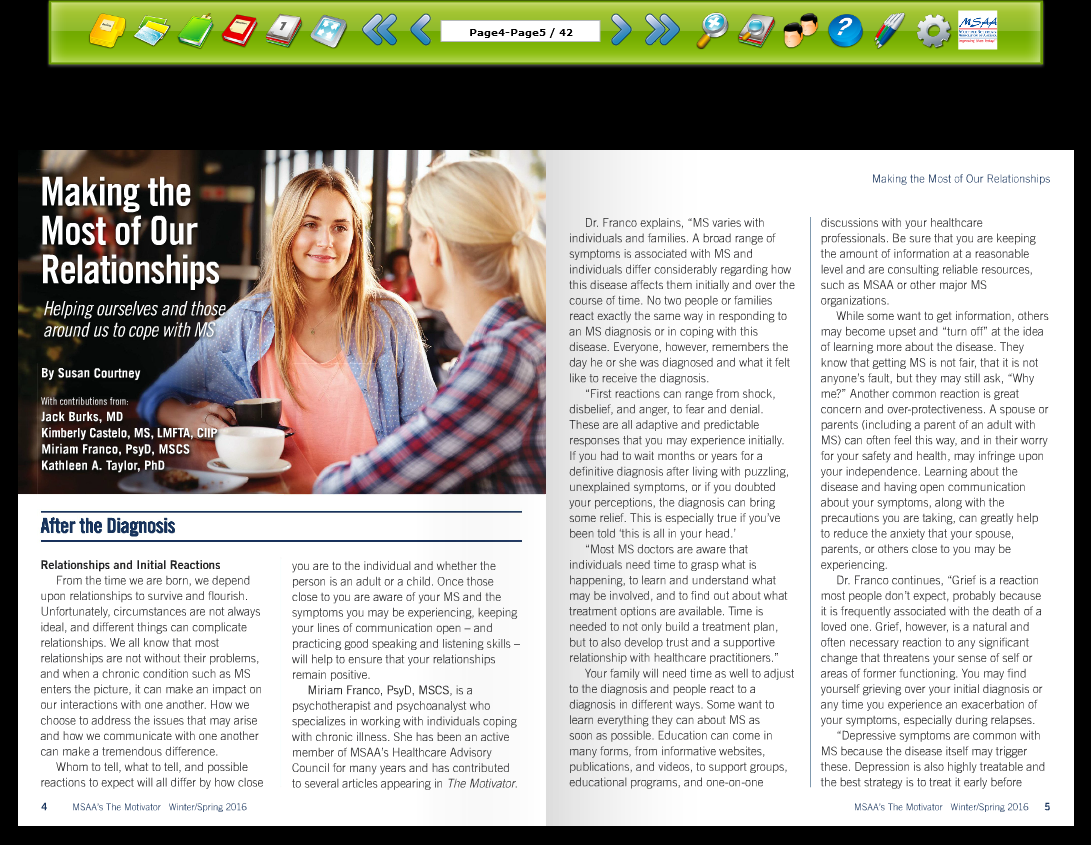Last week, we shared an infographic with our supporters showing just a few of the ways MSAA improves lives for the multiple sclerosis community. Today, we wanted to post that infographic again in case you missed it.
But we wanted to start by posing a question: What, exactly, is a “good” charity?*
There has been a lot of talk recently about good charities and bad charities. News reports have focused on charities that do little, if anything, to help alleviate social issues…and on companies who profit from the increasing need for funding to ensure missions are fulfilled. The nonprofit world is buzzing with words like “expensive ratios,” “ratings,” and “overhead.” The result: We are now taking a new look at what being a good charity really means.

How can your donation improve a life today?
As an organization, MSAA welcomes this conversation. We believe in using our resources efficiently to best serve the needs of the MS community. We have worked hard over the years to streamline our processes and improve our program delivery.
In addition to the wealth of information and support MSAA provides, for those who would be unable to afford equipment or MRI scans on their own, MSAA’s programs make a tangible difference in day-to-day quality of life. This is attested to time and time again in the unsolicited tesmionials of our clients.
*Excerpt from “Thoughts about Giving” in MSAA’s magazine The Motivator (Summer/Fall 2013)
Also made possible through the help of our supporters…
1,040,554 visits for vital information through our website
About 215,000 MSAA publications distributed to provide information and support
66,596 views of our 36 on-demand video programs
7,174 new downloads for MSAA’s smartphone app, “My MS Manager”
Donate now and improve a life today.

“Thank you so much for getting back to me so soon! After over two years of waiting and being passed off [by other organizations], my MRI is scheduled for a couple of hours from now! Thank you!” – Jordan R. from Colorado.
Improve a life today for someone like Jordan.
The Multiple Sclerosis Association of America is a leading resource for the entire MS community, improving lives today through vital services and support.
Improving Lives Today!















